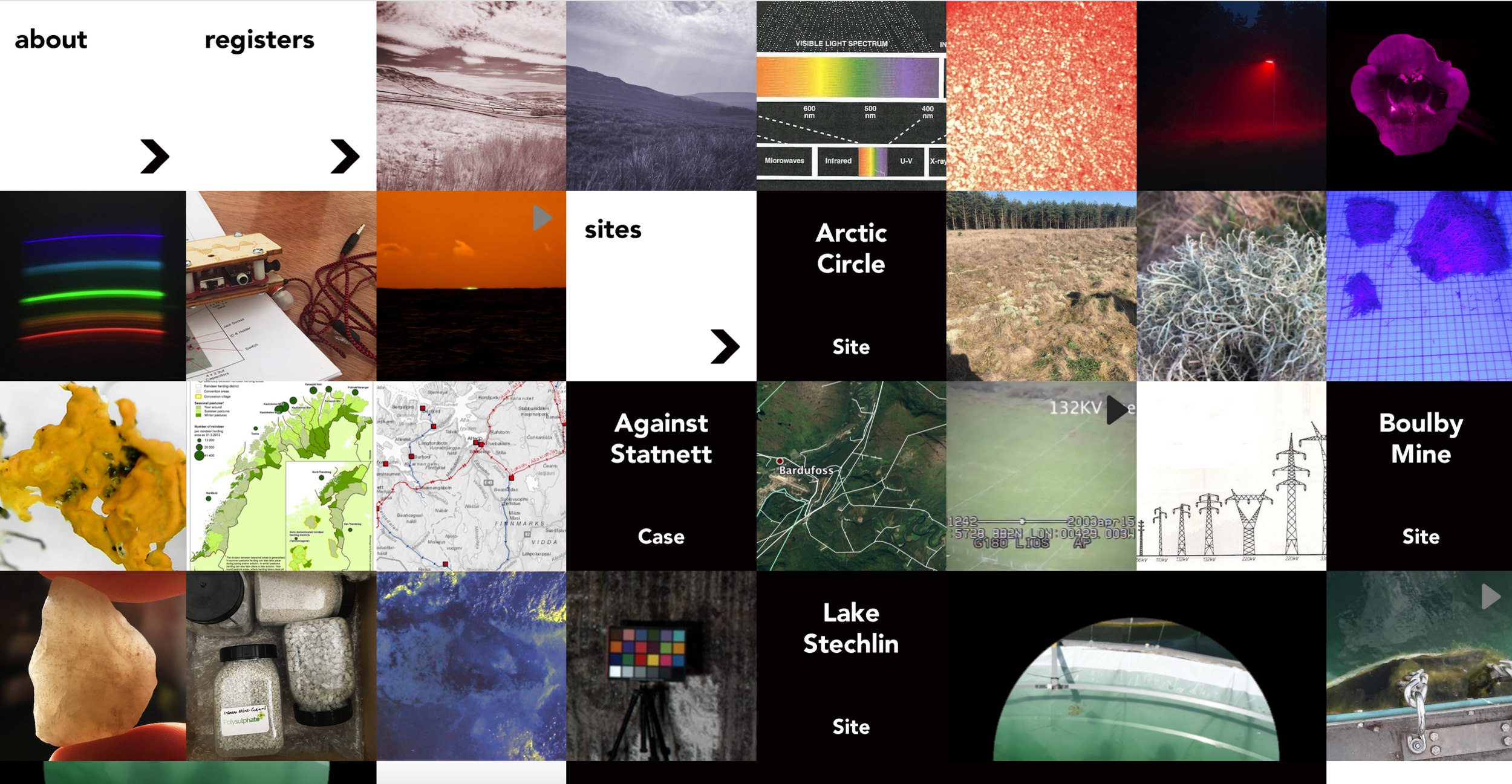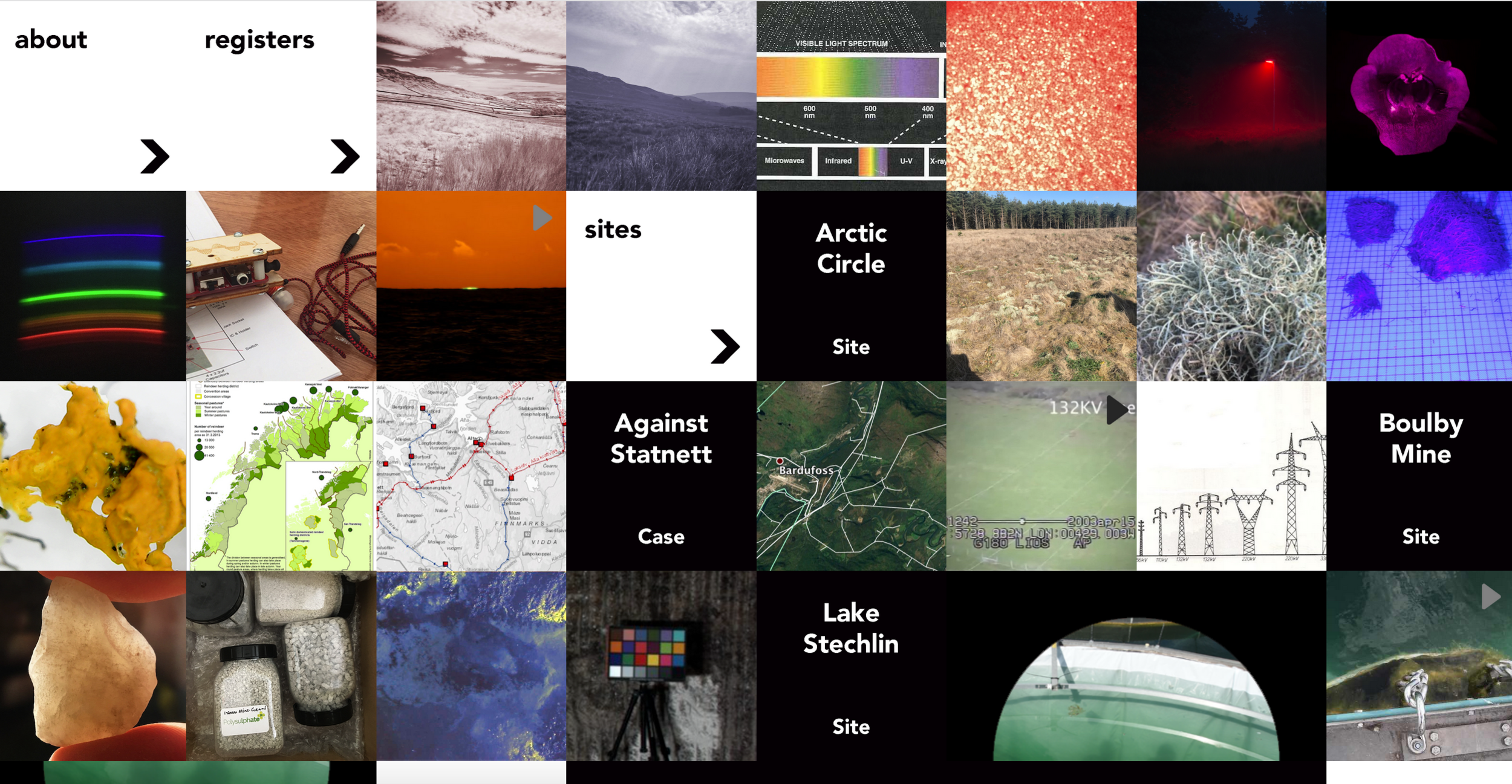
Ecologies of Darkness

Earth as Spectrum Archive // ECOLOGIES OF DARKNESS
Practice-based body of research and collaborations
2017 - ongoing
What is darkness? How can it be defined and why should it be measured? Walk deep into the darkest cave and photons bounce from the walls sharing information, beyond human perceptibility, unless mediated by technology that extends this capacity for sensing. Playing a key role in many species experience, ‘natural’ darkness and ecologies of night are said to be under greater anthropogenic pressure than the daytime (Gaston, 2018). The harder-to-witness, ‘slower’ impact of artificial light at night (ALAN) is increasing yet considered a less urgent threat in relation to others critically shaping Earth’s fabric and its intertwined injustices. ALAN is one of the access points for this research project on darkness, unraveled through the observatory as concept, a methodology that in this instance seeks to reveal the critical impact of imperceptible pollution that may otherwise be obscured under oblique terminology. Through multispecies discourse, the work considers artificial light that is otherwise imperceptible to the human, and asks how does the predominance of artificial light overpower natural darkness and orchestrate particular forms of ‘knowing’?
As a contact point of interdisciplinary activity, the installation and web resource were created for my MA Research Architecture exhibition, to open up situated case studies to learn from Earth’s entanglement with the electromagnetic spectrum, with the aim of understanding how ALAN shapes not only our experience with and towards the ‘other’. A tactile display of minerals and objects collected over the past two years from field research and observatory studies combine with narrative experimentation - navigating the perception and materiality of mediating ‘natural’ phenomena. My Masters project explored how observation is carried out and by who; observational research techniques and their antecedents; desensitisation to the 'image' of light pollution; and the relations of power - traced using scientific, social, political, ecological experience of light and dark via the ‘observatory as concept’.